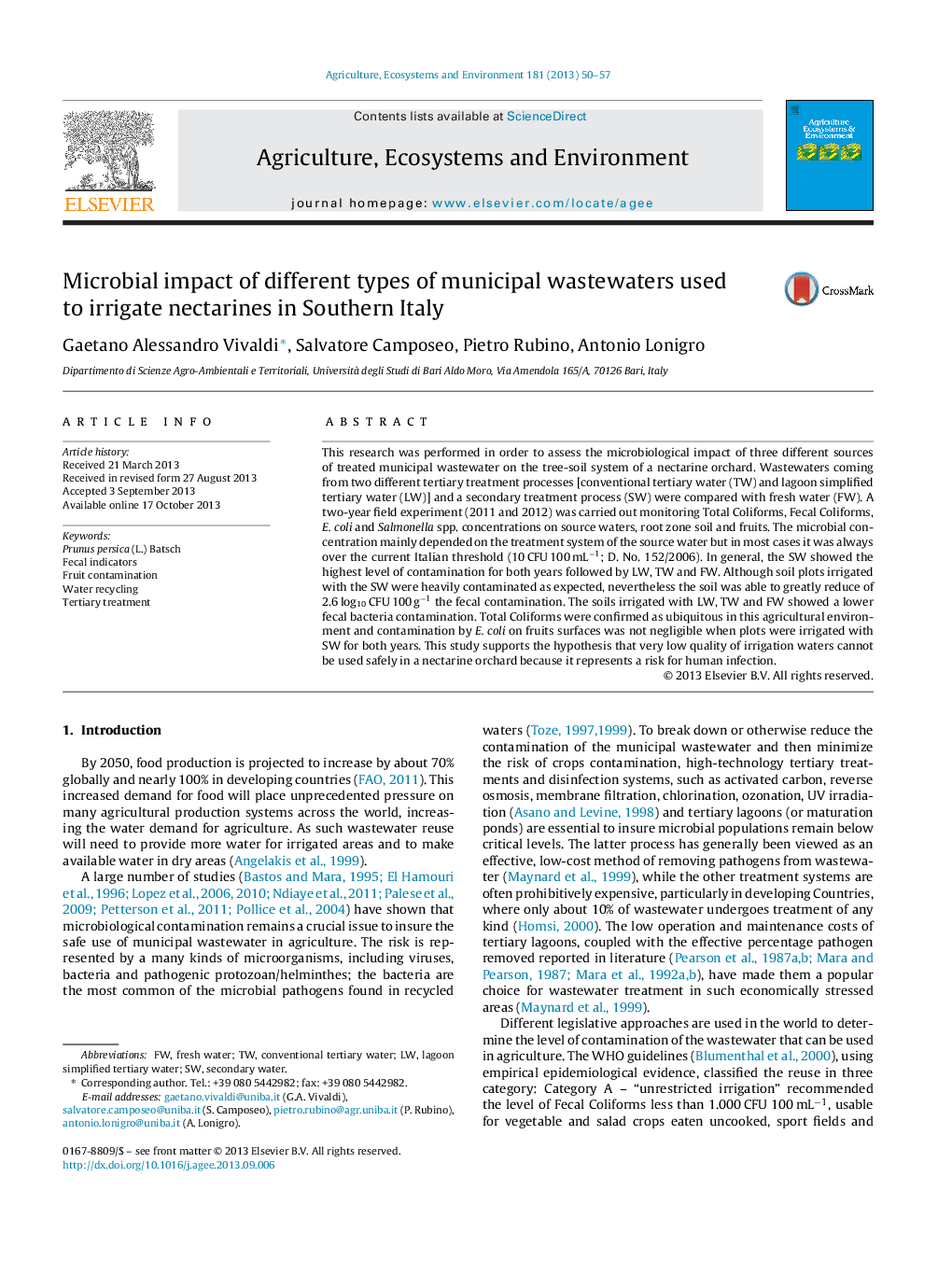| کد مقاله | کد نشریه | سال انتشار | مقاله انگلیسی | نسخه تمام متن |
|---|---|---|---|---|
| 2414134 | 1552071 | 2013 | 8 صفحه PDF | دانلود رایگان |

• Conventional tertiary treatment could cause water pollution if not well managed.
• Soil is able to reduce quickly the high microbial contamination of wastewaters.
• Lagoon simplified tertiary treatment allowed low soil and no fruits contamination.
• Poor quality municipal wastewaters cannot be used safely in a nectarine orchard.
This research was performed in order to assess the microbiological impact of three different sources of treated municipal wastewater on the tree-soil system of a nectarine orchard. Wastewaters coming from two different tertiary treatment processes [conventional tertiary water (TW) and lagoon simplified tertiary water (LW)] and a secondary treatment process (SW) were compared with fresh water (FW). A two-year field experiment (2011 and 2012) was carried out monitoring Total Coliforms, Fecal Coliforms, E. coli and Salmonella spp. concentrations on source waters, root zone soil and fruits. The microbial concentration mainly depended on the treatment system of the source water but in most cases it was always over the current Italian threshold (10 CFU 100 mL−1; D. No. 152/2006). In general, the SW showed the highest level of contamination for both years followed by LW, TW and FW. Although soil plots irrigated with the SW were heavily contaminated as expected, nevertheless the soil was able to greatly reduce of 2.6 log10 CFU 100 g−1 the fecal contamination. The soils irrigated with LW, TW and FW showed a lower fecal bacteria contamination. Total Coliforms were confirmed as ubiquitous in this agricultural environment and contamination by E. coli on fruits surfaces was not negligible when plots were irrigated with SW for both years. This study supports the hypothesis that very low quality of irrigation waters cannot be used safely in a nectarine orchard because it represents a risk for human infection.
Journal: Agriculture, Ecosystems & Environment - Volume 181, 1 December 2013, Pages 50–57